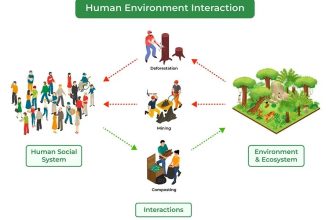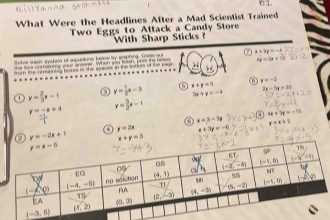Sequential reasoning is the ability to logically connect pieces of information in a specific order. It plays a crucial role in problem-solving, decision-making, and critical thinking. When faced with complex tasks or puzzles, mastering sequential reasoning can help streamline the thought process and enhance cognitive skills. By understanding what is sequential reasoning and how it functions, individuals can improve their analytical abilities and tackle challenges more effectively. Let’s delve into the intricacies of sequential reasoning and explore its significance in our daily lives.
Understanding Sequential Reasoning: A Key to Problem-Solving
Welcome, young thinkers! Today, we’re going to explore a fascinating topic called “sequential reasoning.” Have you ever wondered how our brains work to solve problems step by step? Well, that’s exactly what we’re going to dive into in this article. So, buckle up and get ready to unravel the mysteries of sequential reasoning!
What is Sequential Reasoning?
Sequential reasoning is like creating a roadmap in your mind to solve a puzzle or a problem. Just as you follow the steps in a recipe to bake a cake or put together pieces of a puzzle one by one, sequential reasoning helps you think logically and methodically to reach a solution.
Imagine you are trying to figure out a maze. You start at the entrance and work your way through different pathways until you reach the exit. That’s how sequential reasoning works – you take one step at a time to reach your goal.
Breaking Down Sequential Reasoning
Sequential reasoning involves breaking down a problem into smaller, manageable steps. Each step builds upon the previous one, leading you closer to the solution. Let’s break it down further:
Step 1: Identify the Problem
The first step in sequential reasoning is to understand the problem you’re trying to solve. Whether it’s a math question, a riddle, or a logic puzzle, take a moment to read and analyze what is being asked.
Step 2: Analyze the Information
Once you’ve identified the problem, look at the information provided. What do you know? What do you need to find out? This step helps you gather all the pieces of the puzzle before putting them together.
Step 3: Plan Your Approach
Now that you have a clear understanding of the problem and the information available, it’s time to plan your approach. How can you use the information to move towards a solution? Think about the logical steps you need to take.
Step 4: Execute Your Plan
With your plan in place, it’s time to put it into action. Follow each step carefully, making sure you don’t skip any. This is where your sequential reasoning skills come into play as you navigate through the problem systematically.
Why Is Sequential Reasoning Important?
Sequential reasoning is a critical skill that helps you in many aspects of life. Whether you’re solving a math problem, designing a project, or even playing a strategy game, the ability to think sequentially is invaluable. Here’s why it’s so important:
1. Problem-Solving
When faced with a complex problem, breaking it down into smaller steps using sequential reasoning makes it easier to find a solution. By tackling one step at a time, you can unravel the problem piece by piece.
2. Critical Thinking
Sequential reasoning enhances your critical thinking skills by training your brain to think logically and analytically. It helps you make sense of information, draw connections, and draw conclusions based on evidence.
3. Planning and Organization
Being able to sequence tasks in a logical order is crucial for effective planning and organization. Whether it’s completing a project or following a set of instructions, sequential reasoning helps you stay on track.
4. Decision-Making
When faced with multiple choices, sequential reasoning allows you to evaluate each option systematically. By weighing the pros and cons of each decision step by step, you can make informed choices.
Developing Your Sequential Reasoning Skills
Now that you understand the importance of sequential reasoning, it’s time to sharpen your skills. Here are some fun and engaging activities to help you enhance your sequential reasoning abilities:
1. Logic Puzzles
Challenge yourself with logic puzzles that require you to follow a sequence of steps to reach a solution. Sudoku, riddles, and brain teasers are great for honing your sequential reasoning skills.
2. Coding
Learning to code is an excellent way to practice sequential reasoning. Writing code involves breaking down tasks into smaller steps and arranging them in a logical sequence to create programs and games.
3. Story Sequencing
Practice story sequencing by arranging events in a logical order. You can do this with picture cards, storybooks, or even everyday activities like getting ready for school in the morning.
4. Building Blocks
Use building blocks or puzzles to create sequences and patterns. This hands-on activity helps you visualize and understand how different elements connect in a specific order.
Sequential reasoning is like being a detective solving a mystery – each clue leads you closer to the truth. By mastering this skill, you’ll become a better problem-solver, critical thinker, and decision-maker. So, next time you face a challenging problem, remember to take it one step at a time using sequential reasoning!
Keep exploring, keep learning, and keep reasoning sequentially. The world is full of puzzles waiting to be solved by your brilliant minds!
Number Series Reasoning Tricks – The Easy Way!
Frequently Asked Questions
What is sequential reasoning?
Sequential reasoning refers to the mental process of logically connecting multiple ideas or steps in a particular order to reach a conclusion or solution. It involves identifying patterns, relationships, or sequences to make logical deductions.
How is sequential reasoning different from critical thinking?
Sequential reasoning is a specific aspect of critical thinking that focuses on analyzing and synthesizing information in a step-by-step manner to arrive at a logical outcome. While critical thinking involves broader skills such as evaluation and problem-solving, sequential reasoning deals with the order and arrangement of ideas.
Why is sequential reasoning important in problem-solving?
Sequential reasoning is essential in problem-solving as it helps individuals break down complex problems into smaller, manageable parts. By following a logical sequence of steps, individuals can identify patterns, connections, and solutions more effectively.
Final Thoughts
Sequential reasoning is the ability to identify patterns and make logical connections in a series of events or information. It is crucial for problem-solving, decision-making, and understanding cause-and-effect relationships. By honing this skill, individuals can enhance their critical thinking and analytical abilities. Incorporating sequential reasoning in daily tasks can lead to more efficient and effective outcomes. Mastering what is sequential reasoning opens doors to better comprehension and problem-solving in various aspects of life.






